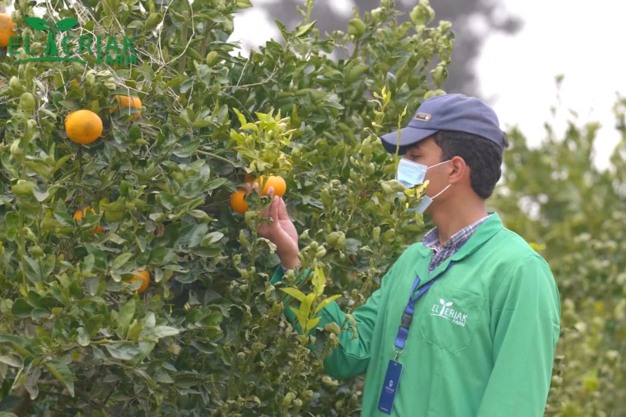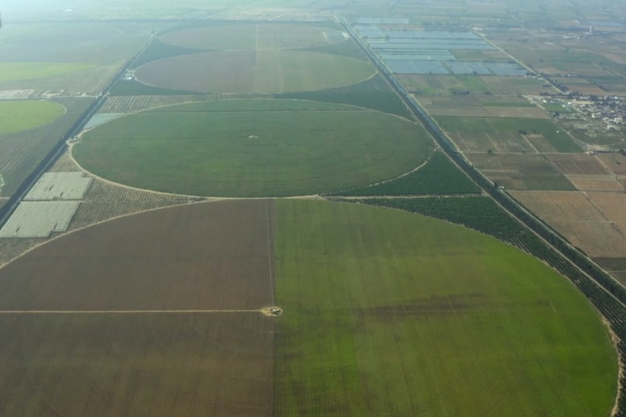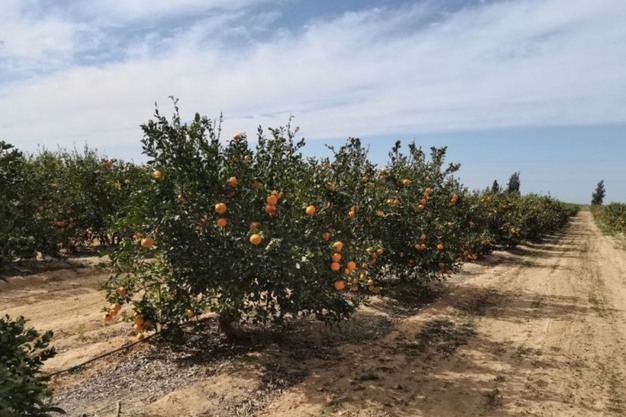The Egyptian citrus season will start on December 15, according to several exporters citing an unofficial communication by the Agricultural Export Council. The season's kick-off comes two weeks later than usual, due to weather changes that alter the timing of fruit ripening. Amgad Nessem, export manager at El Teriak Farms, gives his impressions of the coming season.
Nessem tells FreshPlaza: "The kick-off date has been set after a long wait on our part and that of our markets. I wish a fair wind to all citrus professionals, in Egypt and among our customers. Hopefully, a fine season awaits us this year, in a context of global production deficit, while all eyes are on Egypt."

Egypt will enter the market with fewer volumes than last season, but with better fruit, says Nessem. He explains, "We have fewer volumes compared to last season, which is not bad news in itself. Last season, we had an abundance of small sizes and a greater density of fruits on the trees. This season, we're pleased to report better sizes, with an abundance of large and medium-sized fruit, which means lower volumes but better business. Our operations are going well so far, despite the impact of climate change and a longer summer, which has delayed fruit ripening. The navel oranges reached 70% coloration as of today, and it's only a matter of days before they're ready to harvest. This explains the postponement of the start of the campaign from December 1 to December 15."

Egyptian navel oranges will arrive on the market as the South African season ended prematurely, with below-average volumes, and while Spain continues to go through a period of drought that is reducing its production. Nessem says, "Egypt is alone on the market, and we're already seeing very strong demand from Western Europe, which is eagerly awaiting for the start of the Egyptian season. The same goes for Eastern Europe, which will continue to absorb a large share of the market. There will also be a new demand this season from Argentina, Brazil, and Canada, which used to import from Spain and will be falling back on Egypt this year. There's also our usual Middle East market, which is also very important, and Asia.
Demand is high, but it's up to Egyptian exporters to take advantage of it, by avoiding certain self-sabotaging behaviors, says Nessem. "We have a great opportunity this season, but it's up to Egyptian exporters to make the most of it, by preventing sales on commission, which ruin the efforts of producers and exporters. Unfortunately, all it takes is for a minority of exporters to agree to sell on commission for information to circulate on the market and buyers to demand the same treatment, and for this method of payment to spread and cause prices to drop."

The producer appeals to his colleagues and the Egyptian authorities: "I hope that the export council will intervene by fixing a reference price so that the season benefits all our colleagues, and our country too, which is going through a crisis of shortage of foreign currency, which is turning into high inflation and an economic crisis. This subject has been discussed at length among exporters and the authorities, and it is difficult to implement this measure since not all producers have the same production costs. It may be too late to apply it this season, so I appeal to the common sense of my fellow exporters and then to the export council to move ahead with the introduction of a reference price in the near future."
In terms of this season's prices, a significant increase is inevitable, according to Nessem. "I expect prices this season to be at least 25-30% higher than last season, and this is primarily due to increased production costs, especially imported inputs, and the shortage of dollar reserves in Egypt which makes importing these items even more expensive."

For its part, El Teriak Farms has considerably increased its acreage for this season, shares Nessem. "Citrus is becoming an increasingly buoyant and important sector in Egypt, with global production trends in our favor. At El Teriak Farms, we have increased our citrus acreage by 420 ha this season and introduced new varieties of oranges, mandarins, and grapefruit."
For more information:
Amgad Nessem
El Teriak Farms
Tel: +201 207 976 920
Email: [email protected]
www.elteriakfarms.com
www.linkedin.com/in/amgad-nessem-824342a5
